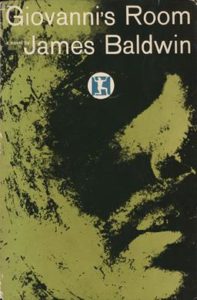

Complex in structure and turbulent in mood, it is in many ways Baldwin's most ambitious novel. Another Country (1962), a wide-ranging exploration of America's racial and sexual boundaries, depicts the suicide of a gifted jazz musician and its ripple effect on those who knew him.


Giovanni's Room (1956) is a searching, and in its day controversial, treatment of the tragic self-delusions of a young American expatriate at war with his own homosexuality. Ten years in the writing, its exploration of religious, sexual, and generational conflicts was described by Baldwin as an attempt to exorcise something, to find out what happened to my father, what happened to all of us. His first novel, Go Tell It on the Mountain (1953), tells the story, rooted in Baldwin's own experience, of a preacher's son coming of age in 1930's Harlem. Here, in a Library of America volume edited by Nobel laureate Toni Morrison, is the fiction that established James Baldwin's reputation as a writer who fused unblinking realism and rare verbal eloquence.


 0 kommentar(er)
0 kommentar(er)
